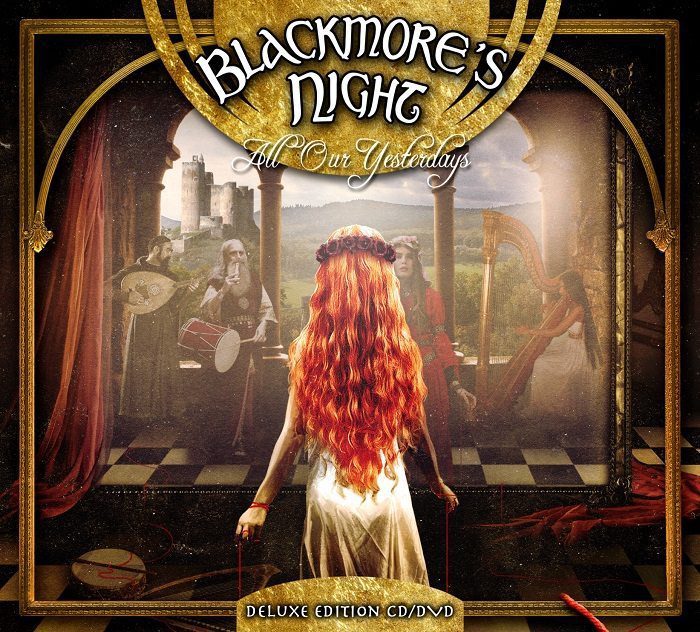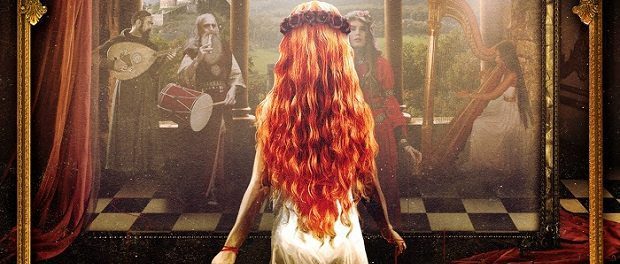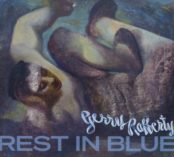[dropcap style=”font-size:100px; color:#992211;”]I[/dropcap]t’s a sobering thought that Richie Blackmore has been a part of Blackmore’s Night for longer than he was with Deep Purple, and has recorded more studio albums with Candice Night than with any other singer.
Steeped in the strange world of American renaissance fayres, the semi-acoustic project actually had had about as much in common with actual renaissance music as Dungeons and Dragons has with medieval history. The first couple of albums did have their moments, with songs that displayed a sublime beauty, but there were others that badly failed a saving roll against cheese.
After the first few records they reached the point of diminishing returns; making a vaguely folk-flavoured pop-rock that was neither quite one thing or the other.
All Our Yesterdays starts out as more of the same. A couple of early numbers come over as a poor man’s Mostly Autumn, the same mix of celtic folk and rock elements, but with none of their atmospherics or emotional depth. For example, the instrumental rocked-up Celtic jig “Allan yn n fan” resembles Mostly Autumn’s “Out of the Inn”, only nowhere near as good, while the ballad “Long Long Time” is a reminder that Candice Night isn’t in the same league as either Olivia Sparnenn or Heather Findlay as a singer.
The instrumental “Darker than Black” is rather better, especially when Ritchie Blackmore lets rip on the Stratocaster and demonstrates he’s still got it as a guitarist, recalling the instrumentals that graced late-period Rainbow albums. The other instrumental, “Queen’s Lament” isn’t as effective, Blackmore noodling about on acoustic guitar without ever going anywhere.
The album then goes completely off the rails with some ill-chosen covers. The version of Mike Oldfield’s “Moonlight Shadow” is  completely unnecessary, and their take on Sonny and Cher’s “I Got You Babe” is utterly horrible.
completely unnecessary, and their take on Sonny and Cher’s “I Got You Babe” is utterly horrible.
But even worse is to come. “Where Are We Going From Here” reworks a number from their own back catalogue, and attempts to turn what had been a beautiful ballad into a uptempo rocker (but only succeeds in cruelly exposing Candice Night’s limitations as a vocalist, who ends up murdering her own song). Which is a shame, because Candice does have a decent voice when she stays within her comfort zone.
Things do pick up slightly with the spirited folk-rock of “Will ‘o the Wisp”, one of the few songs that actually comes to life, but that’s thin pickings for what is ultimately a very disappointing record. It’s hard to believe this tepid album is the work of the musician who created “Burn” and “Stargazer”.
Listening to this album it’s very difficult to escape the conclusion that after eighteen years and ten albums Blackmore’s Night has run its course. Perhaps the time is right for Ritchie to do something completely different; there have been suggestions of some rock-orientated gigs in the near future.
One thing is for sure, if Blackmore isn’t a spent force and still has anything to say, the evidence here suggests he needs a new project in which to say it.



















